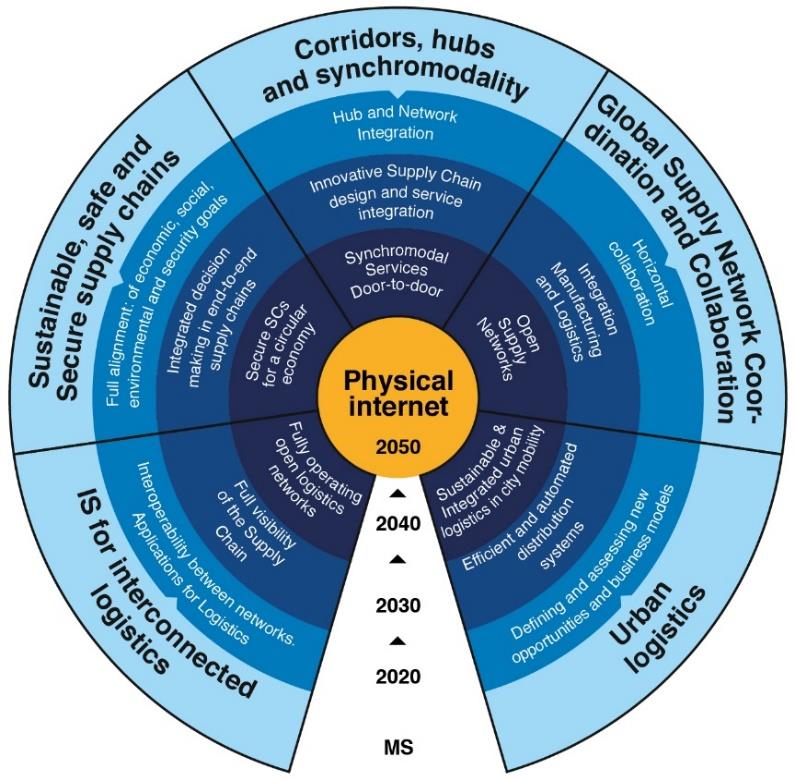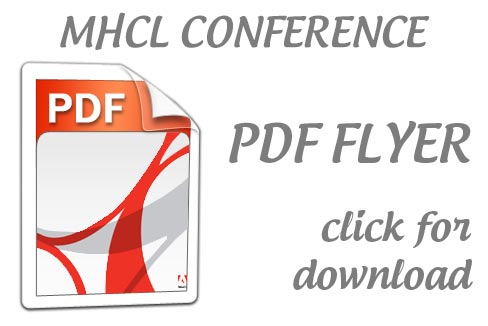“In logistics, the Physical Internet (PI) is an open global logistics system founded on physical, digital, and operational interconnectivity, through encapsulation, interfaces and protocols.1 The Physical Internet is intended to replace current logistical models.”2 3 As there are different layers of functionality and a wide-range perspective for 2050 in the PI, this contribution tries to focus on the technical achievements and first successful implementations of the PI in Austria and Europe.
Modular boxes, PI hubs and their technology accordingly play a major role within effective logistic systems, following the PI fundamentals and forming the PI components and logistic installations. When goods are encapsulated in boxes, and boxes united to unit loads this unit loads can be composed to logistic needs individually by saving space and increasing volume usage in conventional truck transport. As a PI box never runs empty, the PI cares for optimized routing through the network. By avoiding empty miles and wasting packaging of different layers of cartons, cases and plastic sheets, the PI box logistic is also more sustainable and environmental friendly than conventional handling with pallets and skids.
Implementing the main ideas and their benefits of the PI to actual logistics is not a single step but means a change in thinking and collaborating. The presentation will introduce the idea of the PI briefly, outline concrete scenarios and show successful first installations, that follow the PI Manifesto1 (see above). Therefore global players from research and industry within the largely growing worldwide community of the PI try to convince, influence, prototype and perform a change in thinking about logistics.
Austria especially is very happy, to be a pioneer within this logistics research. Many funded projects, as described in the presentation, have been elaborated together with national and international research community and global industrial players. The PI idea is powered by technology platforms like ALICE4, who’s members developed a roadmap towards a working Physical Internet by 2050 and major steps on its way.
PI receives dedicated funding from the European Commission and many national funding programs. With its internationality it is the one and only global logistics research approach and is therefore very attractive to young researchers. The largely growing output of the annual International Physical Internet Conference proves the success of the approach.
Roadmap to the Physical Internet by ALICE4
1 Montreuil, Benoit. "Physical Internet Manifesto, version 1.11.1", CIRRELT Interuniversity Research Center on Enterprise Networks, Logistics and Transportation, Quebec, 28 November 2012. Retrieved on 6 February 2013.
2 Montreuil, Benoit. http://tedxtalks.ted.com/video/Benoit-Montreuil-at-TEDxBuchare
3 Trebilcock, Bob. "Physical Internet Initiative: Pipedream or possibility?", Logistics Management magazine, 1 March 2012. Retrieved on 12 February 2013.
4 http://www.etp-logistics.eu/, a short introduction video to the PI by ALICE: https://www.youtube.com/embed/PJyzFaKOXnY
Christian Landschützer
Assoc. Professor
Institut für Technische Logistik
Graz, Austria















